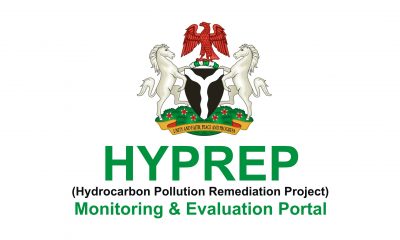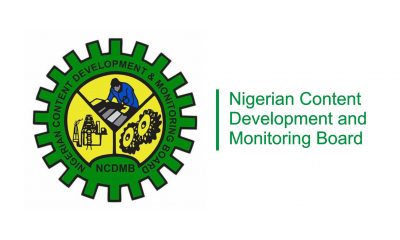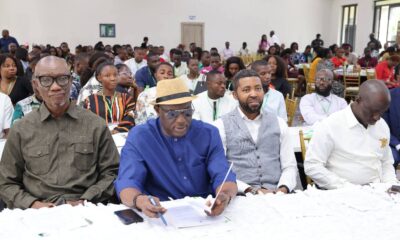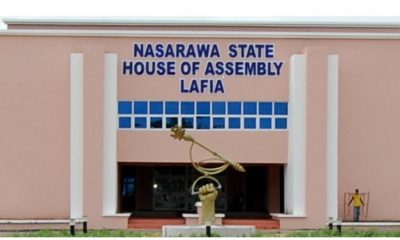Opinion
·We Dared, Creditably!
As Special Assistant to Secretary to the Government (SASG) of ·We Dared, Creditably!Rivers State in the early 1980s, I was one of the foot soldiers of Governor Melford Okilo in his bid for the ticket of National Party of Nigeria (NPN) towards the 1987 presidential race. In the North-South zoning arrangement of NPN, the presidency was billed for the south following the anticipated completion of eight years by Alhaji Shehu Shagari. It was speculated that Shagari would favour Okilo who worked harmoniously with him under the Prime Minister of Nigeria during the First Republic, Alhaji Tafawa Balewa. In a survivalist strategy, NPN Rivers State prepared National Vice Chairman South, Chief Ranami Abah, as the alternate wannabe in the presidential bid, which was christened “Project RR”. Conveniently, RR provided an effective decoy: it created the impression of having to do with Rt Honourable Rossbury R. “RR” Briggs, the Speaker of Rivers State House of Assembly while it actually meant Ribadu Road, which was the seat of power in Lagos. Sadly, that dream was aborted by the military coup of December 30, 1983, which birthed the Buhari/Idiagbon military regime.
Informed by the above experience and consistent study of the Nigerian political firmament and the mindset of the politicians over the years, I advised my friend, Governor Peter Odili, not to vie for the presidency in 2007. I based that opinion on the conviction that, given the prevailing primordial sentiments and geopolitical realities of Nigeria, it would be highly objectionable and therefore improbable for the North to support another southerner to occupy Aso Rock at the heels of Obasanjo’s eight years. Assertively, I added that even the position of Vice President (VP) would be highly unlikely for him due to the fact that, given the vested interest of Europe and America in the oil and gas of Niger Delta vis-a-vis the volatility of the region, the West would be favourably disposed to a VP that speaks the language of the militants. I also referred to the statement by Governor DSP Alamieyeseigha of Bayelsa State thus: “the VP position is for a blue-blooded Niger Deltan”, pointing out that the inference of “blue blooded Niger Deltan” is Ijaw.
Furthering on the unsolicited advice, I opined that he should run for Senate and angle for Senate Presidency or take ambassadorial appointment and cool off overseas for sometime. Unfortunately, that well-meant advice was construed as not supporting the presidential bid of my friend. Eventually, my heart bled profusely and, in my characteristic softness, I shed tears as I watched the scene at Eagle Square on television during PDP primaries on Saturday, December 16, 2006. I prayed fervently that God should give Peter the strength to deal with the unnerving and highly emotional situation. Thank God, the “rock” essence of the name, Peter, manifested and he survived the ordeal. Commenting on that episode, former Senate President, Ken Nnamani, offered that “all serious contenders vying for the PDP ticket were hounded out of the way or convinced to withdraw…Peter Odili was the most prepared of the lot”. Writing in Vanguard Newspaper on December 19, 2006, columnist Pini Jason “wonder[ed] if, in all honesty, President Obasanjo and his cronies would describe what transpired at Eagle Square [that day] as a credible convention and primary election”.
The columnist furthered that “the national convention, which produced Umar Yar’Adua as the presidential flag bearer, would go down in history as the most disgraceful charade of all times”. PM News held that 24 hours to the National Convention, Governors Donald Duke of Cross River State and Ahmed Makarfi of Kaduna State withdrew from the race on the instructions of Obasanjo. These moves were informed by the awareness that the convention may just be a mere formality. The party leadership had conceded the post to Governor Umar Yar’Adua of Katsina State whose elder brother, General Shehu Yar’Adua was Obasanjo’s deputy during the military dispensation of 1976–1979. Till date, political pundits and social critics maintain that if the primaries had been conducted fair and square, Peter Odili would have conveniently clinched the coveted crown. Alluding to the treachery in politics, a man of God in Port Harcourt, referred to PDP as Papa Deceive Pikin. Now, you can say anything about Peter Odili but you cannot accuse him of not having the guts to try. He dared, creditably.
During the 2023 presidential primaries of PDP and All Progressives Congress (APC), two sons of Rivers State were simmering hot in pursuit of the tickets; Governor Nyesom Ezenwo Wike in PDP and Rt Honourable Chibuike Rotimi Amaechi in APC. By happenstance, if both Wike and Amaechi had clenched the tickets of PDP and APC, respectively, it would have been “Head, we win; tail, we win” for Rivers State baring a political revolution at the polls. Rivers State would have been at the centerstage of global attention. The point being made here is that both sons of River State dared, creditably. Yes, they lost but the truth remains that it was Rivers State that lost, not Nyesom Ezenwo Wike and Chibuike RotimiAmaechi. It is said that the greatest failure is failure to try. Therefore, you can accuse Peter Odili, Nyesom Wike and Chibuike Amaechi of whatever suits your fancy but you can not accuse them of failure to try. Try, they did and they acquitted themselves creditably. If PDP had provided a level playing field on December 16, 2006, Odili would have coasted home with the ticket.
If Wike’s political associate and friend had not succumbed to primordial sentiments of religion and ethnicity, he might have shared northern votes with Atiku thereby giving Wike the needed edge to clench the PDP ticket. Like Odili and Wike, Amaechi put in so much in his bid. Having built a University of Transportation in Daura, taken a traditional title from there and vigorously attempted to rationalise the irrationality of constructing a railroad to a foreign land while no two states or cities in the Niger Delta are connected by rail, Amaechi seemed the anointed one. In my congenital optimism, I would say that these three worthy sons of the Niger Delta have taken turns laying a formidable foundation from which Niger Deltans, especially Rivers State politicians, can draw psychological and political steam and lessons towards eventually breaking the glass ceiling of presidency. The point remains that we did not fail to try; we dared and stayed focused till the end. We may not have taken the trophy but we were the hottest contenders in the three cases. Our ascendency to the exalted office of President of the Federal Republic of Nigeria will not be an accident.
A censorious reading of the literature of Judeo-Christian theology informs that God (whoever or whatever He, She, They or It may be) regretted some actions; this means acknowledging mistakes. Therefore, who is man not to make mistakes? To His Excellencies Peter Odili, Nyesom Wike and Chibuike Amaechi, I salute your courage for making that weighty political statement for and on behalf of us all from Rivers State. They can take the presidency from us but they cannot take away the spirit to try and the fact that we dared and that we acquitted ourselves creditably in the process. We hold tenaciously to the fact that in daring, we spoke eloquently and volubly of our indisputable stake-holding in the Nigerian enterprise.
By: Jason Osai
Osai, is a Professor of Development Studies Rivers State University, Port Harcourt.
Opinion
Why Reduce Cut-Off Mark for C.O.E ?
Opinion
Welcome! Worthy Future For R/S
Opinion
Restoring Order, Delivering Good Governance
The political atmosphere in Rivers State has been anything but calm in 2025. Yet, a rare moment of unity was witnessed on Saturday, June 28, when Governor Siminalayi Fubara and Minister of the Federal Capital Territory, Chief Nyesom Wike, appeared side by side at the funeral of Elder Temple Omezurike Onuoha, Wike’s late uncle. What could have passed for a routine condolence visit evolved into a significant political statement—a symbolic show of reconciliation in a state bruised by deep political strife.
The funeral, attended by dignitaries from across the nation, was more than a moment of shared grief. It became the public reflection of a private peace accord reached earlier at the Presidential Villa in Abuja. There, President Bola Ahmed Tinubu brought together Governor Fubara, Minister Wike, the suspended Speaker of the Rivers State House of Assembly, Martin Amaewhule, and other lawmakers to chart a new path forward.
For Rivers people, that truce is a beacon of hope. But they are not content with photo opportunities and promises. What they demand now is the immediate lifting of the state of emergency declared in March 2025, and the unconditional reinstatement of Governor Fubara, Deputy Governor Dr. Ngozi Odu, and all suspended lawmakers. They insist on the restoration of their democratic mandate.
President Tinubu’s decision to suspend the entire structure of Rivers State’s elected leadership and appoint a sole administrator was a drastic response to a deepening political crisis. While it may have prevented a complete breakdown in governance, it also robbed the people of their voice. That silence must now end.
The administrator, retired naval chief Ibok-Ette Ibas, has managed a caretaker role. But Rivers State cannot thrive under unelected stewardship. Democracy must return—not partially, not symbolically, but fully. President Tinubu has to ensure that the people’s will, expressed through the ballot, is restored in word and deed.
Governor Fubara, who will complete his six-month suspension by September, was elected to serve the people of Rivers, not to be sidelined by political intrigues. His return should not be ceremonial. It should come with the full powers and authority vested in him by the constitution and the mandate of Rivers citizens.
The people’s frustration is understandable. At the heart of the political crisis was a power tussle between loyalists of Fubara and those of Wike. Institutions, particularly the State House of Assembly, became battlegrounds. Attempts were made to impeach Fubara. The situation deteriorated into a full-blown crisis, and governance was nearly brought to its knees.
But the tide must now turn. With the Senate’s approval of a record ?1.485 trillion budget for Rivers State for 2025, a new opportunity has emerged. This budget is not just a fiscal document—it is a blueprint for transformation, allocating ?1.077 trillion for capital projects alone. Yet, without the governor’s reinstatement, its execution remains in doubt.
It is Governor Fubara, and only him, who possesses the people’s mandate to execute this ambitious budget. It is time for him to return to duty with vigor, responsibility, and a renewed sense of urgency. The people expect delivery—on roads, hospitals, schools, and job creation.
Rivers civil servants, recovering from neglect and under appreciation, should also continue to be a top priority. Fubara should continue to ensure timely payment of salaries, address pension issues, and create a more effective, motivated public workforce. This is how governance becomes real in people’s lives.
The “Rivers First” mantra with which Fubara campaigned is now being tested. That slogan should become policy. It must inform every appointment, every contract, every budget decision, and every reform. It must reflect the needs and aspirations of the ordinary Rivers person—not political patrons or vested interests.
Beyond infrastructure and administration, political healing is essential. Governor Fubara and Minister Wike must go beyond temporary peace. They should actively unite their camps and followers to form one strong political family. The future of Rivers cannot be built on division.
Political appointments, both at the Federal and State levels, must reflect a spirit of fairness, tolerance, and inclusivity. The days of political vendettas and exclusive lists must end. Every ethnic group, every gender, and every generation must feel included in the new Rivers project.
Rivers is too diverse to be governed by one faction. Lasting peace can only be built on concessions, maturity, and equity. The people are watching to see if the peace deal will lead to deeper understanding or simply paper over cracks in an already fragile political arrangement.
Wike, now a national figure as Minister of the FCT, has a responsibility to rise above the local fray and support the development of Rivers State. His influence should bring federal attention and investment to the state, not political interference or division.
Likewise, Fubara should lead with restraint, humility, and a focus on service delivery. His return should not be marked by revenge or political purges but by inclusive leadership that welcomes even former adversaries into the process of rebuilding the state.
“The people are no longer interested in power struggles. They want light in their streets, drugs in their hospitals, teachers in their classrooms, and jobs for their children. The politics of ego and entitlement have to give way to governance with purpose.
The appearance of both leaders at the funeral was a glimpse of what unity could look like. That moment should now evolve into a movement-one that prioritizes Rivers State over every personal ambition. Let it be the beginning of true reconciliation and progress.
As September draws near, the Federal government should act decisively to end the state of emergency and reinstate all suspended officials. Rivers State must return to constitutional order and normal democratic processes. This is the minimum requirement of good governance.
The crisis in Rivers has dragged on for too long. The truce is a step forward, but much more is needed. Reinstating Governor Fubara, implementing the ?1.485 trillion budget, and uniting political factions are now the urgent tasks ahead. Rivers people have suffered enough. It is time to restore leadership, rebuild trust, and finally put Rivers first.
By: Amieyeofori Ibim
Amieyeofori Ibim is former Editor of The Tide Newspapers, political analyst and public affairs commentator
-

 Politics12 hours ago
Politics12 hours agoINEC Trains Political Parties Officials On ICNP Use Ahead By-Elections
-

 Business14 hours ago
Business14 hours agoReplace Nipa Palms With Mangroove In Ogoni, Group Urges FG, HYPREP
-

 Business11 hours ago
Business11 hours agoNCDMB, Dangote Refinery Unveil JTC On Deepening Local Content
-
Niger Delta13 hours ago
C’River Hands Over Rubber Plantation to Private Company
-

 Nation12 hours ago
Nation12 hours agoHYPREP Reaffirms Support For Ogoni Youths …Organises Workshop For Undergraduates
-

 Business14 hours ago
Business14 hours agoIndustry Leaders Defend Local Content, … Rally Behind NCDMB
-

 Politics11 hours ago
Politics11 hours agoNasarawa Speaker Advocates Conducive Executive/Legislature Relations
-
Niger Delta13 hours ago
Delta Leverages On Extensive River Networks To Drive Blue Economy

